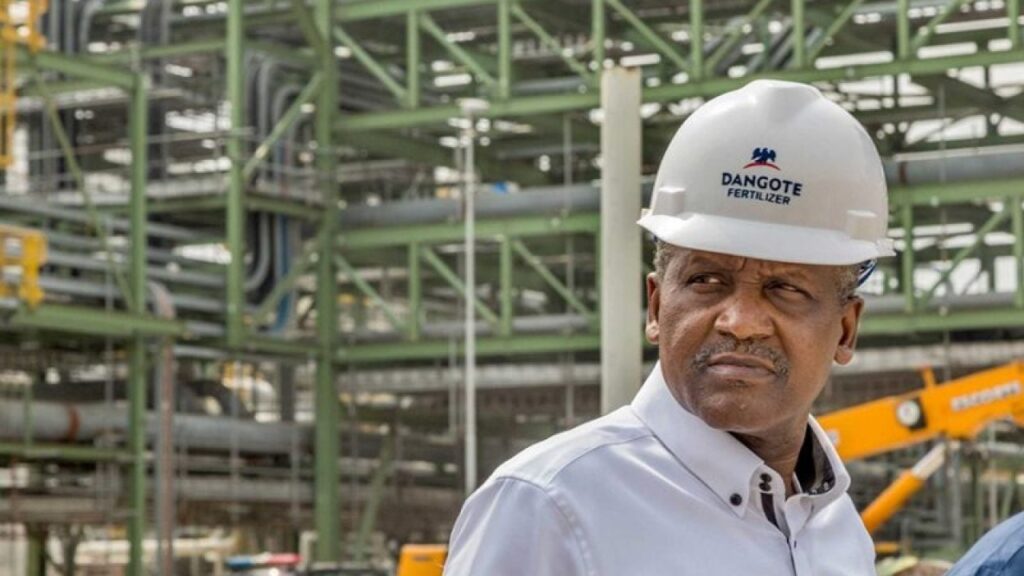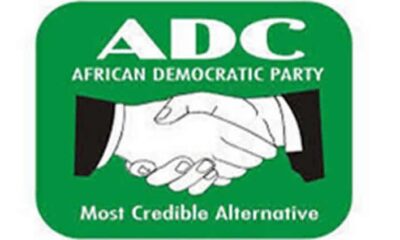ECONOMY
Shameful Relief? Nigerians React as Dangote Refinery Slashes Petrol Price by ₦15 While Government Watches

In what many have described as a hollow victory, the Dangote Refinery has reportedly reduced the price of Premium Motor Spirit (PMS) — popularly called petrol — from ₦1,200 per litre to ₦1,185. While the headlines screamed “jubilation,” many Nigerians remain unimpressed, calling the ₦15 reduction a “drop in the ocean” amidst a suffocating economic climate.
For a country whose economy revolves heavily around fuel prices — with transportation, food, and manufacturing directly tied to petrol costs — this slight decrease feels like an insult to the daily struggles of ordinary citizens. “They call this good news?” asked a frustrated commuter in Lagos. “₦15 can’t even buy pure water now.”
What makes this development more unsettling is not just the meagre price cut, but the fact that it comes from a private refinery. The Dangote Refinery, hailed as the largest in Africa, has become the unlikely price-dictator of Nigeria’s most essential commodity. One would expect such decisions from the federal government, but in this case, the state is notably silent — a silence many view as passive endorsement of privatized control over national resources.
Since the removal of fuel subsidies in 2023 under the Tinubu administration, fuel prices have been left at the mercy of market forces. This shift, touted as a necessary reform to save public funds, has left millions of Nigerians grappling with skyrocketing costs. Public transportation fares doubled overnight, food prices soared, and inflation spiraled to new heights.
Now, more than ever, Nigerians expect leadership — not just from businessmen, but from elected officials. Yet, there is little to no government-driven effort to regulate or relieve the fuel burden. Instead, it is a billionaire industrialist stepping in, and even then, the result is barely noticeable to the average citizen.
The question now is whether Nigerians should be celebrating this reduction at all. For some, it’s a sign that local refining is finally beginning to bear fruit. But for many, it underscores a deeper shame — that a private individual is doing what the government has failed to do: marginally reduce fuel prices in a country rich in crude oil.
“This should have come from the Ministry of Petroleum or the Presidency,” said a lecturer in Abuja. “Instead, we are looking to a single refinery owner like he’s our savior. It’s embarrassing.”
A ₦15 reduction won’t change much for struggling families, transport workers, or small businesses. What Nigeria needs is a sustainable fuel pricing system, driven by transparency, local refining, and a government that actively works for its people, not one that outsources its responsibilities.
Until then, “jubilation” over token reductions may be all we get — and that, indeed, is a national shame.
Discover more from Asiwaju Media
Subscribe to get the latest posts sent to your email.
-

 POLITICS1 day ago
POLITICS1 day agoChinedu Ogah Decamps from APC to ADC, Joins Coalition—Video Claims Surface Online
-

 NEWS4 days ago
NEWS4 days agoNigerian Internet Fraudster Ehiremen Aigbokhan Accused of Stealing ₦460 Million Meant for Trump Inauguration
-

 ENTERTAINMENT5 days ago
ENTERTAINMENT5 days agoShocking! Davido Accused of Secret Dealings That Could Ruin His Career
-

 NEWS5 days ago
NEWS5 days agoPlateau Assembly Elects Nanloong Daniel as Speaker After Dewan’s Resignation
-

 POLITICS4 days ago
POLITICS4 days agoAmaechi Wife Stole N4B Every Month, Says Wike
-

 NEWS3 days ago
NEWS3 days agoEbonyi Village Lights Up with Self-Funded Electrification , Plans Road Construction
-

 POLITICS3 days ago
POLITICS3 days agoADC Targets Five Governors as More PDP, APC Leaders Join Opposition Coalition
-

 CAMPUS REPORTS5 days ago
CAMPUS REPORTS5 days agoAbandoned Newborn Sparks Outrage in Ikwo Community Near FUNAI Campus
-

 JOBS/SCHOLARSHIPS6 days ago
JOBS/SCHOLARSHIPS6 days agoCall For Applications: SEEDINVEST Acceleration Program For Nigerian Entrepreneurs (Up to N5 Million in Asset Grants + 6-week online Training)
-

 POLITICS3 days ago
POLITICS3 days agoADC Ebonyi Welcomes Massive Influx of New Members
-

 INSIDE NYSC7 days ago
INSIDE NYSC7 days agoSanwo-Olu Urges 7,887 Corps Members to Tackle Unemployment with Enterprise
-

 POLITICS6 days ago
POLITICS6 days agoNwifuru condemns killing of 13 Ebonyi indigenes in Anambra, vows justice



























